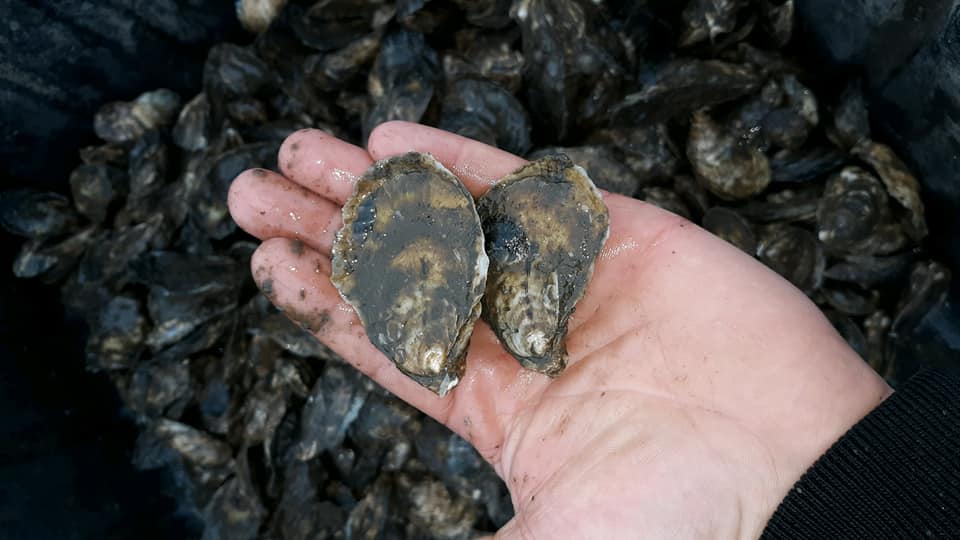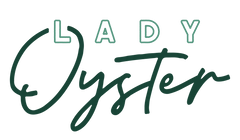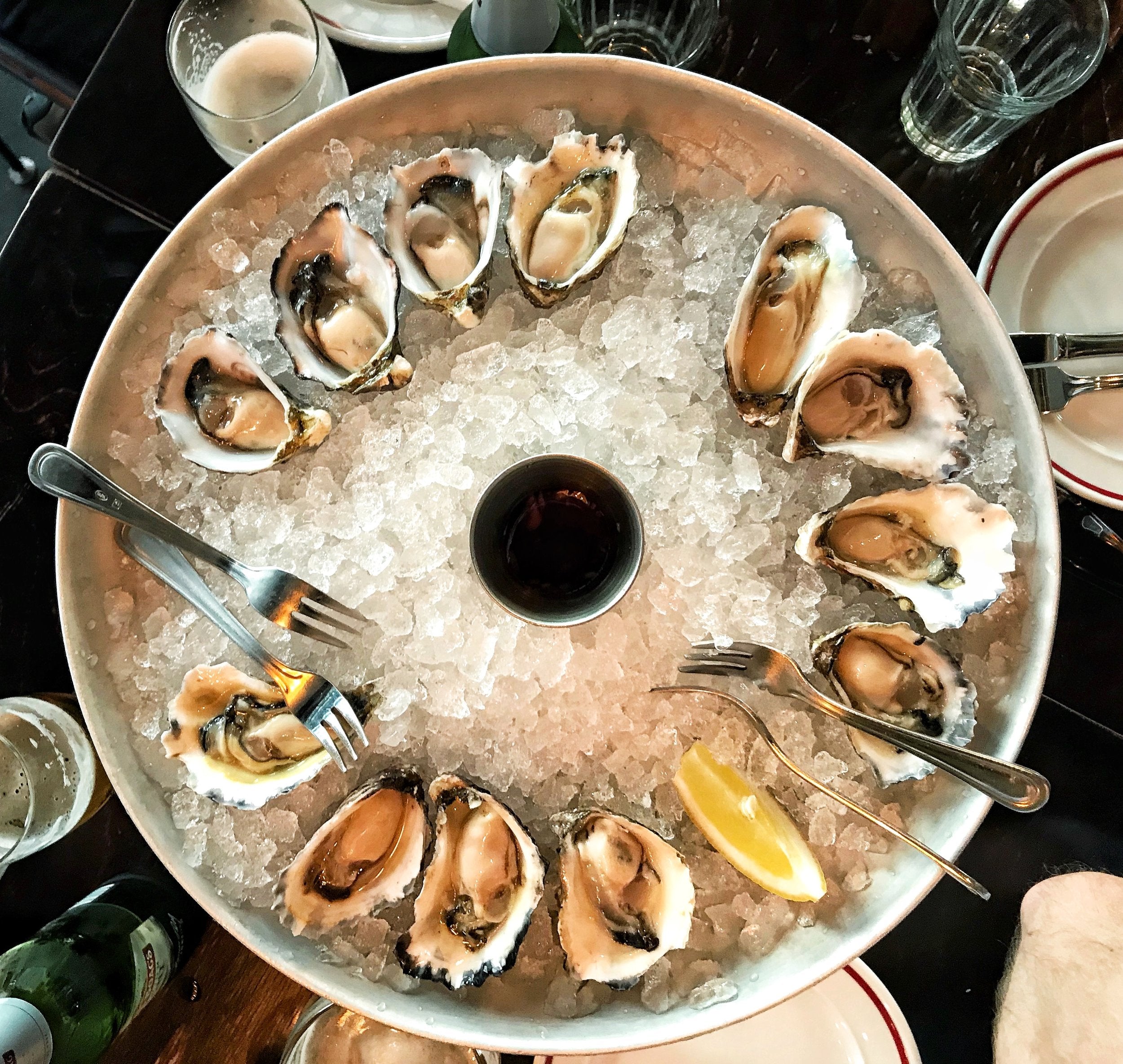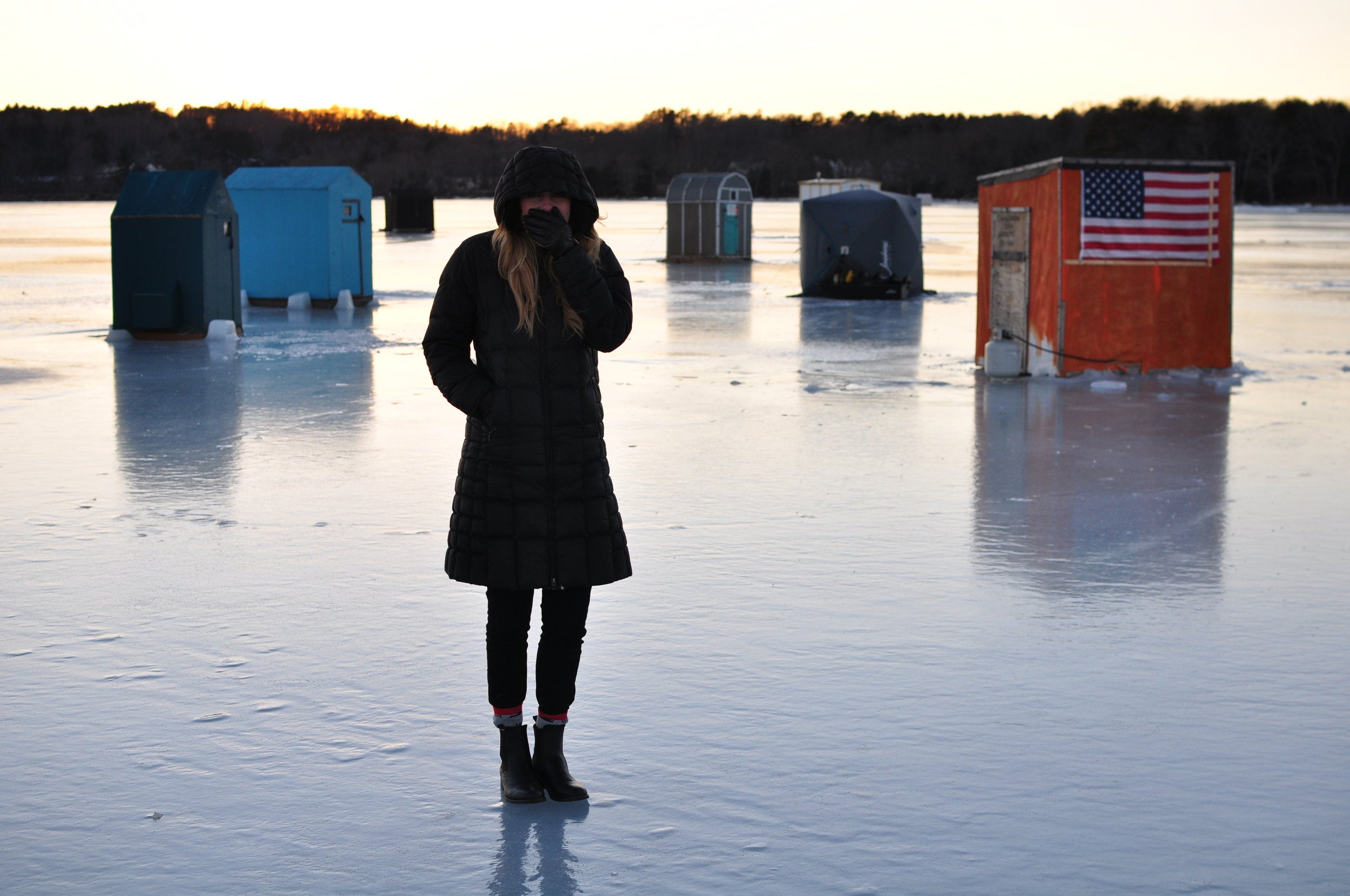Finding Your Path in the Oyster Industry: Nicolette Mariano’s Story of True Grit

Nicolette Mariano and I connected via my last farm story about Oyster Boss. I originally planned to blend the perspectives of both Jeff Tilley and Nicolette for the feature due to their different roles in the business, but after interviewing both of them I changed my mind. Although their journeys eventually crossed paths with Oyster Boss, they had very different stories to tell. Cutting it down to one feature would have missed what this blog does best - sharing the personal true grit in this industry.
Nicolette’s story starts at a very young age. Her dreams of staying involved with aquaculture took many turns and I was amazed by her resilience in pursuing her passions. She has become an asset to the industry in more ways than one, and is just getting started. This story also taught me the beauty of taking a chance on someone special… One of my favorite anecdotes was when she got the job with the Town of Barnstable, Massachusetts… And never you mind the Native Floridian’s shoe choice during a New England snowfall.
Here is Nicolette’s story.

Virginia: Let’s start with your background and how you found yourself in the aquaculture industry.
Nicolette: I grew up in little ol’ Stuart Florida, down a two-mile peninsula on a Barrier Island, close to the water and with Indian River Lagoon as basically in my backyard. Living here shaped me a lot as a child and where I am today, but the biggest influence on my life was the Environmental Studies Center on Indian River Drive in Jensen Beach, Florida, along with their teachers. What makes the Center even more special is that it is part of the Martin County School System.
I refer to the Center as my second home. I still pop in! Marilyn Gavitt is the current Director, who was my 5th grade teacher. They foster a lot of youth involvement with the environment and getting them on, and in, the water.
At the Environmental Studies Center, I was part of the Good Nature Series during Middle School, and when I was going into High School, I started volunteering at Florida Oceanographic Coastal Center on Hutchinson Island. The weekend before the 2004 Hurricane, they hosted a volunteer orientation and I was trained on many exhibits such as the touch tanks, sting rays sea turtles, and the outdoor game fish lagoon, etc.
When the Hurricane came, we didn’t have electric or water for about two weeks, and with all the cabin fever I knew I needed to get out of the house and help out with the cleanup. Some of the animals didn’t make it, sadly. My job was to clean up the nature trail. As I was working on the trail, I came across a pull barn with a white tarp over it… I came to figure out it was a shellfish hatchery for clams and oysters. As I was trying to clean things up and put debris into piles, I ventured into the Mangroves, fell, and sunk up to my waste. Four grown men had to pull me out of the mud! After all this, I really began to take interest in aquaculture, as opposed to marine biology and dolphins.
V: What a unique experience to set you on the aquaculture path! How did it continue after high school?
Nicolette: During High School I spent a lot of time researching colleges with an aquaculture program. I was accepted to Florida Institute of Technology in Melbourne, FL, which was the only school out of the five that I applied to that had an aquaculture program.
“You majored in something really specific,” said my old marine science teacher. It was true. When I graduated in 2013 and with the economic crash, the hiring market was just flooded. I wanted to stay in Florida, but I received so many denials due to a lack of paid experience. How do you compete for an entry-level position when you are up against unemployed people with 20 years’ experience?
I landed the position and later on asked them why they chose me over other candidates. My boss said, “You were the only person who knew what a FLUPSY was!” (a floating upweller system). It was an eight-month position and she was the one person who truly fought for me for that role. The interview panel knew I had flown up from Florida for the position and were hesitant. But she said, “well you don’t know if her family has a home on the Cape!”
Looking back, I learned so much from that job – skills that I am still using today at Oyster Boss. Following that position, I secured an opportunity at Muscongous Bay Oyster Hatchery to work in oyster spawning, and I was there for about a year… I swear, those baby oysters would double in size overnight sometimes!
V: Your aquaculture experience at this point must have given you a great foundation for future opportunities. How did you meet Jeff at Oyster Boss?
Nicolette: After my time in New England, I worked in the Department of Cell Biology at Duke University Medical Center in the Z-Core Lab and later the University of Southern Mississippi… I noticed I was naturally moving my way back down South and I wanted that to happen. In January 2018, I accepted a position teaching science for sixth grade back in my hometown and was there for about two months when Jeff reached out to me on Facebook. I had just moved back to my family and settled in! That being said, I told Jeff that I was always open to a good offer.
He was looking for a Farm Manager in Eastpoint. Eastpoint is kind of like Maine – the middle of nowhere but no snow. Oyster Boss was in its infancy and I had just moved back home. I told him that I was teaching but that I wanted to help, and he invited me to come up during the summer for a week-long interview.
When I visited, I was able to spend a lot of time in the truck with Jeff. Nothing is really nearby up there! Looking back on it, it was a lot of one-on-one time with the owner, and maybe my future boss. I had never had that before in any other position.
We have the same interests regarding clean water, the environment, the industry… For someone who enjoys fishing a hobby and is not a Biologist, Jeff’s passion to build a business was admirable.
Jeff created a position for me to manage sales and distribution in South Florida, without requiring a move to East Point. He completely gave me the power to do the outreach and education that we needed to do. In addition to this I am also the on-staff aquaculture biologist where I periodically visit the farm, connect with Reid and the growers, and work together using my experience to incorporate some best management practices.
V: Tell us a little more about Oyster Boss and the oysters?
Nicolette: Last year, Oyster Boss was growing a million diploids (spawning oysters) and a million triploid oysters (non-spawning) . In terms of gear, we’re using floating cages – six pack cages. We get our oysters at about 6 mm, and begin them in the smaller mesh 4mm bags. As they grow larger, we begin sorting and tumbling the to chip that newer lip off so they develop a deep nice cup. Everyone wants to have a nice deep cup oyster sitting on their plate, freshly shucked.
We are in Alligator Harbor, and what makes Alligator Harbor different from Apalachicola is that we are surrounded by national forests, and there aren’t any freshwater springs or rivers in our growing area. For that reason, our salinity ranges from 30 – 33 ppt. I’m always so surprised how salty they are and that’s what makes our oysters different. They are very consistent with the brine. We’re never had lower than 28 ppt. Even in the next town over like Oyster Bay, there’s more housing and freshwater runoff that completely changes the flavor and salinity levels.
V: Regarding your personal journey, do you have any observations from being a women in a traditionally male-dominated industry?
Nicolette: The biology and science field has historically been male-dominated, and aquaculture is very similar in that sense. But in the Town of Barnstable Natural Resource Department up North, I was really surprised. In our office, 4 out of 5 people were women. It was eye-opening and different. In the past, I’d go into interviews and the panel’s gender balance would be the opposite of that.
Women are making their mark in the aquaculture industry, and not to be biased, but women are intuitive to things - small details - when growing oysters.
For me, I truly believe that if I could convince a couple salty fisherman to change their opinion on something in New England, then I know I can do the same thing in Florida. If it can happen up there, we can do it down there. We’re all working in aquaculture and accepting it in a new form, and it’s only growing. It’s all about coming together as a family - a very dysfunctional family - but a family.
At Oyster Boss, I love being in an environment that is open to accepting and learning from my feedback. I want this to be the job that stays for a long time. It’s so exciting to be a part of that. It’s new – it’s a father son business. There is so much heart in it.
V: What does today look like for you and what’s next?
Nicolette: Late November 2018 was the first time I could bring some oysters to back to the Stuart area. I’m making appointments, lining up meetings with Chefs, and sharing the product. Before that, I was working on our three-year seed and harvest plan; essentially getting into a good a crop cycle. We want to work that out and ensure we have no gaps in supply of our product. As a science person I’m used to writing everything down – having that yellow bible (the log book as they call it up North!). It’s important to have a protocol and keep a record of our results.
It’s also about the estuaries and preservation. With my position, we’re working to collaborate with different groups, individuals, organizations, and partner on propagation and restoration projects. We want to talk to people on how to stay involved and we are open to all ideas. The industry as a whole needs the industry to grow, and as Aquaculturists, we can learn from each other and support that outreach and education.
Editor’s Note: Supporting each other through sharing personal stories is what this site is all about. You can continue to follow Nicolette’s journey on Instagram at @oyster_boss_llc Facebook on the Oyster Boss page.




